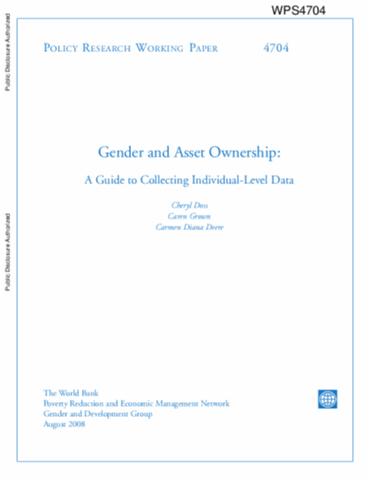Resource information
Ownership and control over assets such as land and housing provide direct and indirect benefits to individuals and households, including a secure place to live, the means of a livelihood, protection during emergencies, and collateral for credit that can be used for investment or consumption. Unfortunately, few studies - either at the micro or macro levels- examine the gender dimensions of asset ownership. This paper sets out a framework for researchers who are interested in collecting data on individual level asset ownership and analyzing the gender asset gap. It reviews best practices in existing surveys with respect to data collection on assets at both the household and individual levels, and shows how various questions on individually owned assets can be incorporated with a minimum of effort and cost into existing multi-topic household surveys, using examples of three Living Standard Measurement Study surveys: the 1998-99 Ghana survey, the 2000 Guatemala survey, and the 1997-98 Vietnam survey questionnaires. The analysis shows that it is feasible to add a minimal set of questions to enable calculation of the gender asset gap. Adding a series of extra questions will permit a more satisfactory and nuanced analysis of asset acquisition, use, disposition, and valuation - information that is critical for policies promoting gender equality, poverty reduction, and economic growth.


